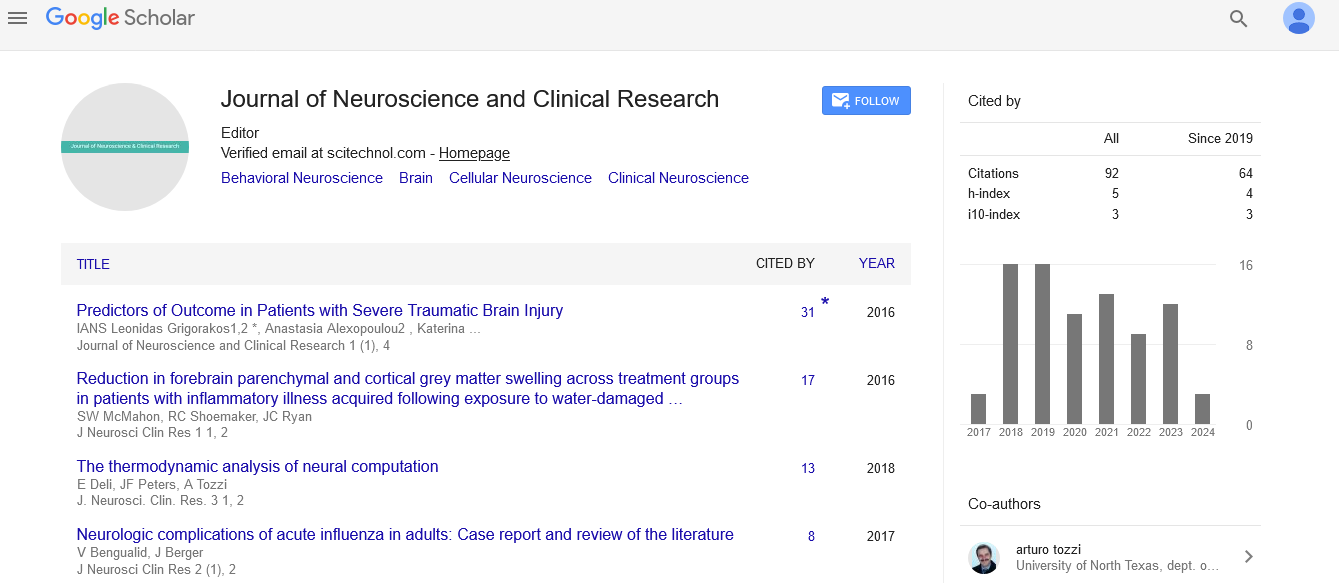Facilitators and barriers to modifying lifestyles as adjuvant treatment in patients with depression in primary care: A qualitative study
Aguilar A, Serrano M J , Navarro C , Martinez Perrochan M M, Magallon R and Olivan B
Research network on preventive activities and health promotion, Spain
: J Neurosci Clin Res
Abstract
Major depression is a highly prevalent condition. Lifestyle-based interventions seem to be appropriate strategies as coadjutant treatment. The objective of this study was to analyze and identify expectations and experiences of both patients and healthcare professionals that can point to the main barriers and facilitators with regard to the modification of lifestyles in patients suffering from major depression. For his reason, a qualitative design was used to collect information from a wide range of purposefully and theoretically guided samples of depressed patients and health professionals from Primary Care (PC). Both in-depth interviews and discussion groups were carried out. A thematic analysis was performed from grounded theory in order to explore, develop and define until saturation the emergent categories of analysis derived from the transcribed data. A series of central aspects with respect to the implementation of a programme for the modification of life styles for depressive patients were highlighted. These may be organized around ‘personal aspects ’that include patient history and disposition; ‘programmatic aspects’ that include presentation and monitoring’, and modification of ‘cognitive’ and ‘behavioural’ habits, and ‘transversal aspects’ that comprise the possibilities of ‘social support’ and defining categories of ‘objectives’.
Conclusion: The implementation of intervention programmes for modifying lifestyles in patients with depression is complex, given the nature of the disorder itself. Key issues exist for the success of the intervention, such as the simplicity of guidelines, tailoring through motivational interviewing, prolonged and intense monitoring throughout the different stages of the disorder, and the provision of adequate feedback and social support. Primary Care level could be an appropriate level in which to implement these interventions.
Biography
E-mail: bolivan@unizar.es
 Spanish
Spanish  Chinese
Chinese  Russian
Russian  German
German  French
French  Japanese
Japanese  Portuguese
Portuguese  Hindi
Hindi 